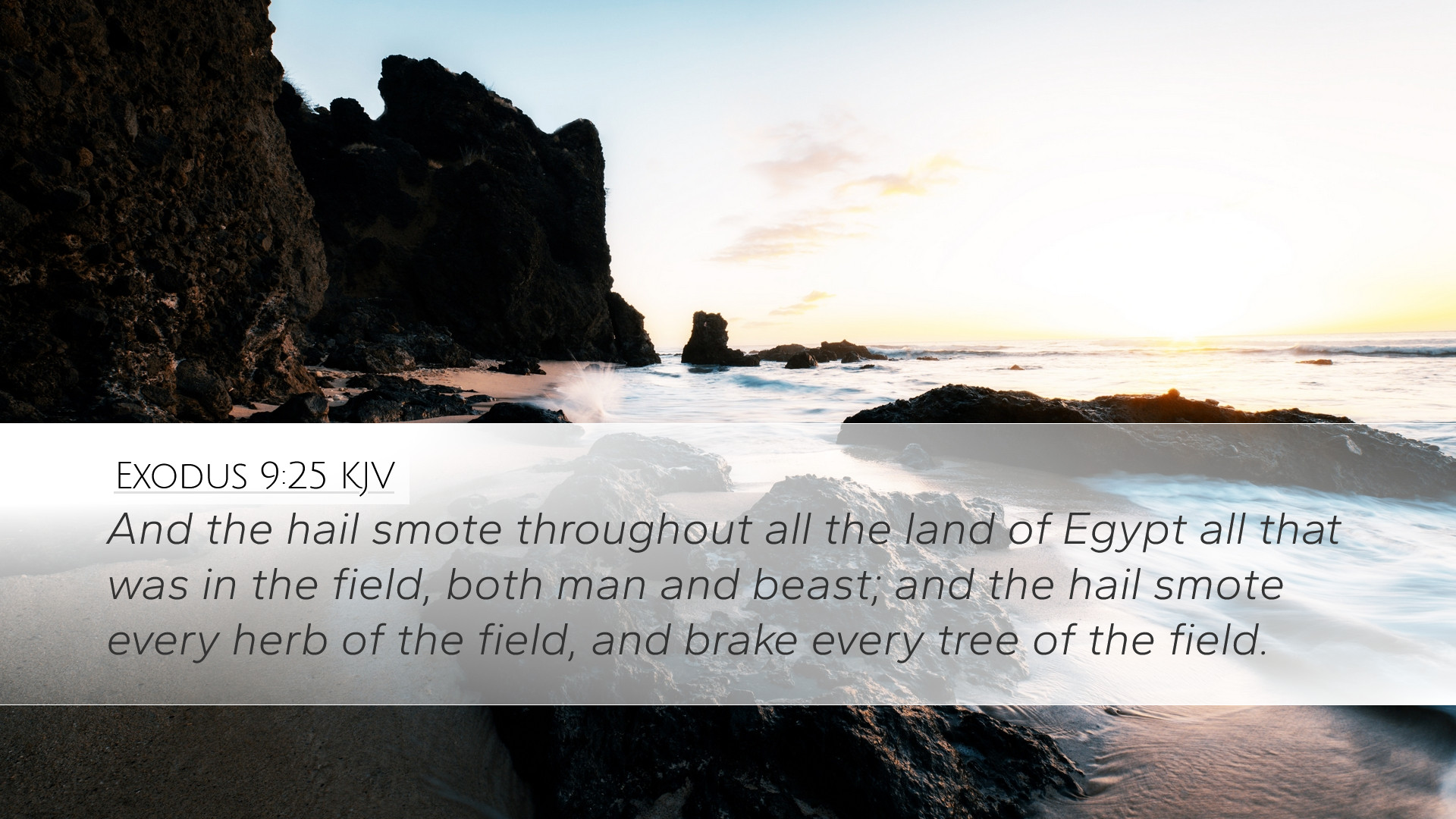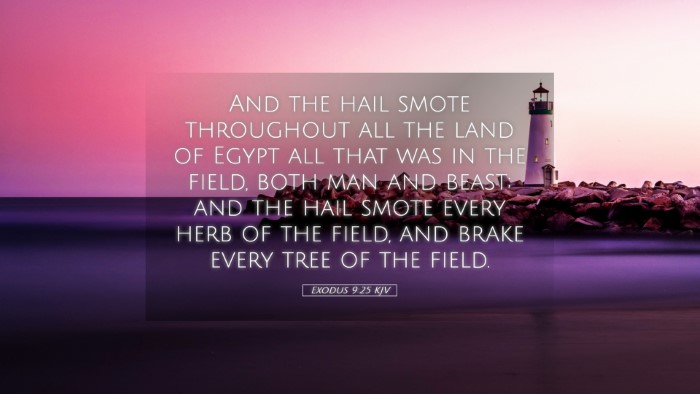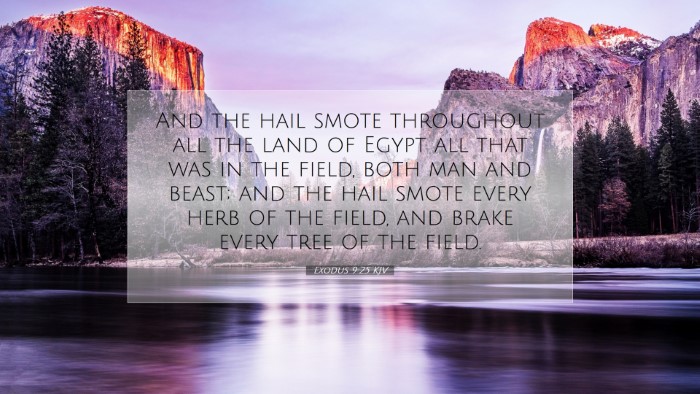Commentary on Exodus 9:25
Text of Exodus 9:25 (KJV): "And the hail smote throughout all the land of Egypt all that was in the field, both man and beast; and the hail smote every herb of the field, and brake every tree of the field."
Introduction
This verse describes one of the plagues that God inflicted upon Egypt as a judgment against Pharaoh and his people for their oppression of Israel. The severity of the hail signifies God's power and the seriousness of disobedience to His commands. Commentators such as Matthew Henry, Albert Barnes, and Adam Clarke provide rich insights into the implications of this event both historically and spiritually.
Contextual Analysis
The context of this plague must be understood within the larger narrative of the Exodus. At this point, God had already sent several plagues to convince Pharaoh to let His people go. The hail plague was the seventh of ten plagues and served as a dramatic warning.
Divine Sovereignty in Judgment
According to Matthew Henry, this plague demonstrates God's sovereignty over creation. The hail damaged not only the crops but also struck down the people and beasts who remained in the fields. This indicates that God's judgment extends over every aspect of life, reinforcing the notion that no one can escape His grasp when His wrath is poured out.
Symbolism of Hail
Albert Barnes emphasizes that hail is often associated with divine wrath in the Scriptures. It serves as a physical manifestation of God's judgment, designed to evoke fear and repentance. The destructive nature of the hail could be seen as a symbol of the spiritual destructiveness of sin, particularly pride and rebellion as exhibited by Pharaoh.
Theological Implications
Adam Clarke notes that each of the plagues serves to both punish the Egyptians and persuade them to acknowledge the God of Israel. The hail not only destroyed agricultural life but was intended to challenge the Egyptian gods, particularly Seth, the deity associated with storms. This reveals the theological dimension of the plagues; they confront and dismantle false worship.
Spiritual Lessons from the Plague of Hail
-
God's Power and Authority:
The visibility of God’s power through natural phenomena like hail forces believers to recognize His authority over creation. As noted by Matthew Henry, this should inspire humility in the face of divine governance.
-
Call to Repentance:
The intent behind God’s judgment was not merely punitive but aimed at leading to repentance. Barnes points out that each plague escalated the opportunity for Pharaoh to turn back to God, reflecting God's patience and desire for restoration.
-
Understanding Consequences of Sin:
The devastation wrought by hail illustrates the consequences of disobedience. Clarke suggests that just as physical crops were destroyed, so too is spiritual vitality weakened by stubbornness against God.
Liberal Interpretations and Contemporary Applications
In modern exegesis, some may consider the scientific understanding of weather patterns as a means to dilute the miraculous nature of the plagues. However, historical context remains crucial, as the miraculous events in Exodus serve as demonstrations of God’s covenant faithfulness to Israel in contrast to Egypt's idolatry.
Lessons for Leaders and Congregations
The implications of the hail plague extend into church leadership and congregational life. Leaders are reminded of their responsibility to model obedience and lead their communities in adherence to God’s commands. Reflecting on Barnes' commentary, one can glean that spiritual repercussion often results from collective disobedience.
Hope Amid Judgment
Even amid such dire judgment, there is a thread of hope. God’s promise of deliverance follows the plagues, showcasing His mercy. As Henry suggests, those who heed God’s call may find protection amidst judgment, analogous to the blood on the doorposts during the final plague.
Conclusion
Exodus 9:25 serves as a sobering reminder of the seriousness of sin and the inevitability of divine judgment. As believers reflect on this passage, they are called to recognize God's sovereign authority and to respond in repentance and faith. The interpretations provided by Henry, Barnes, and Clarke urge today's readers to appreciate both the historic and spiritual dimensions of the text, encouraging an earnest pursuit of holiness in light of God's character.


